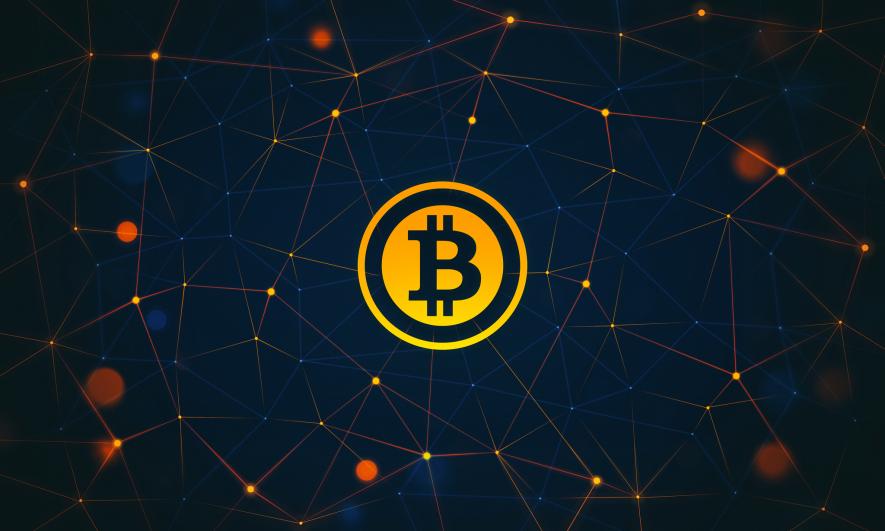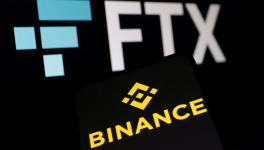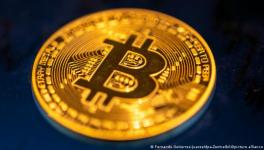‘Worse Than Tulip Mania’: Bitcoin Bubble Sparks Concern Across the World

The frenzied rise and wild swings that bitcoin prices have seen have prompted comparisons to various speculative bubbles in history.
Economist Nouriel Roubini said recently that bitcoin is the “mother of all bubbles, the biggest bubble in human history”, if compared with the Mississippi bubble, the Tech bubble, the Tulip Mania or the South Sea bubble.
The bitcoin bubble is “much worse” than the Tulip mania, he said. “If you look at the peak, bitcoin is an order of magnitude higher than Tulip mania. It has now crashed by about 60 per cent compared to the peak of mid-December… And it’s all the way down to zero. The fundamental value of bitcoin is zero.”
(In)Famous bubbles
The tulip mania occurred in the Netherlands during the 1630s, when the prices for tulips, especially the striped, vividly coloured varieties of the flower, went up sharply due to speculative demand.
The streaks of colour were given to the flowers by a virus (the Tulip Breaking Virus), and such tulips were in short supply.
People began to buy tulips, in the hope that they would be able to sell them at even higher prices. The price rise was such that the most expensive tulips cost even more than an average-sized house at the time. The biggest spike in tulip prices came towards the end of 1636 and early 1637. The bubble collapsed in February 1637.
The South Sea Bubble was a speculative mania in Britain during the 18th century, centred on the hype around the South Sea Company. Founded in 1711, the company was given a monopoly to trade with South America, which it hoped would deliver huge profits. The expectations turned out to be misplaced, but confidence in the company went up as King George I of Great Britain became the governor of the company in 1718.
In 1720, the South Sea Company proposed that the company would take over Britain’s government debt, with the debt being converted into the company’s shares. The creditors of the government could now trade in the shares, prices of which went up as it was felt that stocks backed by government debt would be safe investment. The company had to pay the government a certain fee, and it hoped to pay the fee chiefly by making use of the excess of the total market value of the stock (prices of which were rising) over the amount of the debt.
The stock prices of the company went up nearly ten times in 1720 – from 128 ½ pounds in January 1720 to more than 1000 pounds in August – as a result of feverish buying. Share prices collapsed subsequently, declining to 124 pounds by September and further to 100 pounds by the end of the year. Prices of other stocks also declined, resulting in financial ruin for a large number of people and serious damage to the economy.
Warnings from regulators around the world
Regulators and policy-makers around the world have been warning against the dangers associated with the bitcoin bubble.
Yves Mersch, a member of the executive board at the European Central Bank, recently gave a lecture in London, in which he came down heavily on cryptocurrencies. He compared bitcoins to the “will-o’-the-wisp”, a mythical creature which according to legend, lurked in the marshes and lured unsuspecting travellers using a “wisp” (a thin streak) of light.
“European folklore warns of the will-o’-the-wisp, a malignant creature that dwelt in marshes. It would appear as a light in the distance, which a traveller would mistake for houses. As they reached the place where they thought the light was, it would move further ahead, drawing them deeper into the marsh to their untimely death and a watery grave,” he said.
Cryptocurrencies or virtual currencies are the most recent beguiling wisps, he said.
Agustín Carstens, head of the Bank for International Settlements (“the bank for central banks”), had said earlier during a lecture at Frankurt that bitcoin “has become a combination of a bubble, a Ponzi scheme and an environmental disaster”.
“… the current fascination with these cryptocurrencies seems to have more to do with speculative mania than any use as a form of electronic payment, except for illegal activities,” he said.
Carstens called upon central banks to not allow cryptocurrencies to freeload on the trust provided by the same institutional infrastructure that serves the overall financial system.
The finance ministers of France and Germany, and the heads of the two countries’ central banks, recently sent a letter to fellow G20 finance ministers in which they warned that cryptocurrencies could pose “substantial risks for investors” and result in “potential risks in the field of financial stability”. They called for the policy and monetary implications of cryptocurrencies to be placed on the agenda of the upcoming G20 meeting, Reuters reported.
Hong Kong’s securities regulator – the Securities and Futures Commission (SFC) – said on 9 February that it has sent letters to seven cryptocurrency exchanges in Hong Kong warning them that they should not trade cryptocurrencies which are securities as defined in law.
“Investors are also urged to be wary of the increased risk of extreme price volatility, hacking and fraud when investing in cryptocurrencies and ICOs, and using services of cryptocurrency exchanges. Where these occur in an online environment, victims may have difficulty pursuing action against cryptocurrency exchanges or fraudsters to recover losses,” the SFC said in a statement.
Major hacking attacks which resulted in holdings worth millions of dollars being stolen from cryptocurrencies have occurred in the recent months. South Korean cryptocurrency exchange Youbit went bankrupt in December 2017 after it lost 17 per cent of its assets in a hacking attack. In January 2018, $532 million in investors’ funds was stolen from Tokyo-based cryptocurrency exchange Coincheck. Mt. Gox, another Tokyo-based exchange, had collapsed following a $480 million heist in 2014.
In India
In India, the Reserve Bank of India (RBI) has been warning about "the potential financial, operational, legal, customer protection and security related risks" associated with cryptocurrencies from 2013 onwards.
Finance Minister Arun Jaitley said in his Budget speech that government does not consider cryptocurrencies legal tender, and that it will take all measures "to eliminate use of these crypto-assets in financing illegitimate activities or as part of the payment system."
Several major banks have withdrawn their support to bitcoin-related transactions and suspended the accounts of major bitcoin exchanges in the recent weeks.
Bitcoin: costly, time-consuming
In his London lecture, Mersch noted that bitcoin is far inferior to existing payment options. “Bitcoin transactions generally require confirmation from six miners. With each block taking around ten minutes to mine, you would expect transactions to take an hour to process. But with recent network congestion, the average time for one confirmation can easily exceed several hours.”
“At these speeds, if you bought a bunch of tulips with Bitcoin they may well have wilted by the time the transaction was confirmed,” he said, in a cheeky reference to the tulip mania.
Mersch recalled a recent incident which starkly demonstrated this – the North American Bitcoin Conference held in Miami on January 18-19 had stopped accepting bitcoin due to network fees and congestion!
The costs associated with bitcoin, the extremely high power consumption of bitcoin mining in particular, have attracted wide attention.
Much has been also written about the volatility of bitcoin prices, a result of massive speculative activity.
Mersch added in his lecture that some bitcoin ETFs (Exchange-Traded Funds) even use leverage (borrowed money) to amplify the price movements, sparking concern among financial market regulators.
BIS chief Carstens said that the central banks of the world had studied the Distributed Ledger Technology (DLT) which underlies cryptocurrencies.
“In practice, central bank experiments show that DLT-based systems are very expensive to run and slower and much less efficient to operate than conventional payment and settlement systems,” he said.
Get the latest reports & analysis with people's perspective on Protests, movements & deep analytical videos, discussions of the current affairs in your Telegram app. Subscribe to NewsClick's Telegram channel & get Real-Time updates on stories, as they get published on our website.
























